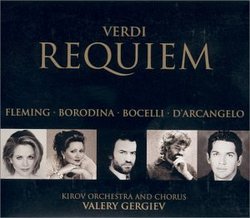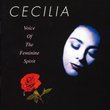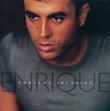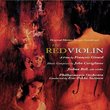| All Artists: Giuseppe Verdi, Valery Gergiev, Andrea Bocelli, Renée Fleming, Kirov Theater Kirov Theater Chorus, Olga Borodina, Ildebrando D'Arcangelo Title: Verdi - Requiem / Fleming � Borodina � Bocelli � D'Arcangelo � Gerviev Members Wishing: 0 Total Copies: 0 Label: Philips Original Release Date: 1/1/2001 Re-Release Date: 3/27/2001 Genre: Classical Styles: Opera & Classical Vocal, Historical Periods, Early Music Number of Discs: 2 SwapaCD Credits: 2 UPCs: 028946807927, 0028946807927 |
Search - Giuseppe Verdi, Valery Gergiev, Andrea Bocelli :: Verdi - Requiem / Fleming � Borodina � Bocelli � D'Arcangelo � Gerviev
 | Giuseppe Verdi, Valery Gergiev, Andrea Bocelli Verdi - Requiem / Fleming � Borodina � Bocelli � D'Arcangelo � Gerviev Genre: Classical
Verdi's Requiem demands a quartet of soloists who could be cast as leads in Aida, along with a virtuoso chorus and orchestra and a conductor who can balance the score's heaven-shaking drama with its spiritual longings. Sm... more » |
Larger Image |
CD DetailsSynopsis
Amazon.com Verdi's Requiem demands a quartet of soloists who could be cast as leads in Aida, along with a virtuoso chorus and orchestra and a conductor who can balance the score's heaven-shaking drama with its spiritual longings. Small surprise, then, that few recordings, including this one, can fulfill all those demands. Renée Fleming's soprano is perhaps the most beautiful such instrument before the public today, and Olga Borodina's mezzo has the equivalent smoothness and texture, making for a gorgeous duet in the "Agnus Dei." Idlebrando D'Arcangelo, too, has a lovely voice, though, like so many of today's basses, it's tilted toward the top and lacks the deep black resonance that fills out the part. Andrea Bocelli? Let's just say he's no asset to the production. His fans will love him, but Verdians will be appalled. The voice is unsupported, its small size mitigated by close microphoning, and his phrasing is rudimentary. Chorus and orchestra are fine, though they lack the tonal shadings the very best bring to this music. Valery Gergiev leads a dynamic performance, ear-shattering in the "Dies Irae," reverential elsewhere. In sum, a decent Requiem that falls short of the best, including those of the stereo era led by Solti, Giulini, and Barenboim, and vintage recordings by Toscanini, de Sabata, and Serafin. --Dan Davis Similarly Requested CDs
|
CD ReviewsWhy? Grady Harp | Los Angeles, CA United States | 04/06/2001 (1 out of 5 stars) "Given the splendor of Gergiev, Fleming and Borodina this recording has been highly touted. BIG disappointment......While Gergiev's operatic approach is viable, this performance is like a string of stop and go ideas. Yes Fleming and Borodina maintain their reputations, as does bass D'Arcangelo, but when will record producers stop pulling Bocelli out of his Pop element and let him blast away at ballads instead of blistering opera? This ends up being a commercial vehicle for Bocelli fans instead of a contribution to the bulging ranks of recorded Verdi Requiems. Makes you wonder why Gergiev consented to record this. Pass......" Requiem for Philips J. Luis Juarez Echenique | Mexico City | 04/06/2001 (1 out of 5 stars) "No, don't even try it. Leave this recording right where it is. Verdi's Requiem is too great a masterpiece to tolerate this disrespect." With a broken heart... Grady Harp | 04/30/2001 (3 out of 5 stars) "With a broken I am forced to give just three stars to a recording that, just a month after its release, it's becoming an (infamous) legend. First of all, all the criticism and rage unleashed by the decision of Phillips to put Bocelli in this recording will never be enough to make up for this most disrespectful act of musical vandalism. Disrespect to Gergiev, to Fleming, to Borodina, to D'Arcangelo but, especially, to Verdi and the Requiem. We are not talking of a tenor here, we are talking of some crooner who, by I don't know what life chances, got his way up to the top of the pop world. Excuses like Bocelli sings with "passion and heart" or that Phillips and Gergiev wanted to "experiment" and "humanize" the Requiem by trying to depict the suffering of real people through the voice of Bocelli are just non-sense. This was just a commercial decision where I'm almost sure Maestro Gergiev had little influence. Phillips just put over his shoulders the ungrateful task of getting the best out of this pseudo singer. Verdi would have never tolerated such an "experiment". He loved the human voice too much to have authorized the participation of a crooner in a work that is basically about voices. It will never be enough to insist, once and again, on the operatic nature of the Requiem. Every segment of the Requiem is a "mini-drama" where the voice must be put into the service of the drama. No wonder why the great interpreters of the Requiem had been the great verdian singers of all times: Leontyne Price, Zinka Milanov, Montserrat Caballe, Jussi Bjoerling, Carlo Bergonzi, just to name a few. If the person who wrote that Phillips is experimenting with a new form of viewing the Requiem is right, this is an experiment that should be resisted and rejected. The Requiem does not need such an "ambassador" to get "popularized". The music is magnificent enough. Even the most stupid person in the world would fall under the spell of this piece without the help of signor Bocelli. Even the most blinded Bocelli groupie would realize the difference a real tenor voice makes in this music. But the harm has been done and we will have to live with it. So, let's see the positive things of this disaster. First and foremost, there is Renee Fleming. Fleming is the most amazing artist to have come in many years. She is the owner of the most beautiful soprano voice I've heard since Caballe. And, as Caballe, she has the most amazing breathing technique in the world today. It is as if she were not breathing. The length of her phrases is amazing, the phrasing sublime. The luminosity of her pianissimi is something the world had not heard since Milanov and Caballe's great days (one just thinks if one day she'll sing Aida's arias, or Leonora's "D'amor sull'ali rosee"). Most amazing of all, what Fleming does here is what you get in the concert hall. Just yesterday (April 29, 2001) I heard her at Carnegie Hall in the Requiem with the Met orchestra under Levine. No studio tricks, no miking, just Fleming soaring over the orchestra, pianissimo after pianissimo. This is the stuff legends are made from... I don't think (as Anne Midgette of the New York Times wrote last week reviewing this recording) that when she tries to be dramatic it's in detriment of her beauty of tone. Not at all, no way...Fleming's luminiscence and sensuousness is her trademark in everything she does, even in the most manic passages of her "Libera me". Borodina, oh...Borodina. She is pure class and elegance, the rolls-royce of mezzos today. The most incredible and beautiful mezzo voice. No flaws, no wobbles, no detectable passaggi. Her voice is amazingly even all along the tessitura. The most beautiful voice in the service of verdian drama. An ideal match made in heaven. This recording documents the chemistry between Borodina and Fleming. Some wise producer should take notice of it and match them again in some duets recording: What about Anna Bolena and Jane Seymour's duet from Donizetti's "Anna Bolena"? or Maria Stuarda and Elisabetta's confrontation scene from Donizetti's "Maria Stuarda" ("Figlia impura di Bolena..." can you imagine?)? or Semiramide and Arsace's "Serbami Ognor" from Rossini's "Semiramide"? In sum, if this recording deserves three stars it's because these two fabulous ladies. So, now go to the recording and let them speak for themselves."
|

 Track Listings (10) - Disc #1
Track Listings (10) - Disc #1








